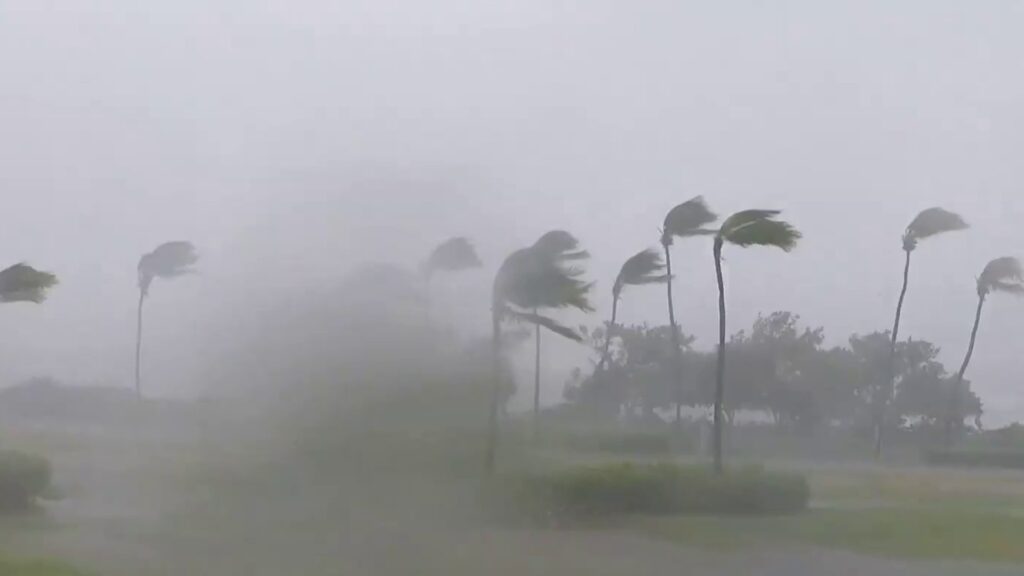Thursday
Because of how Hurricane Fiona has hammered Puerto Rico, I’m reposting a slightly altered version of the 2017 essay I wrote about Hurricane Maria, the previous hurricane to devastate the island.
Reposted from Oct. 8, 2017
If you get a chance, check out “It’s Almost Like Praying,” the powerful Lin-Manuel Miranda song performed by Puerto Rican artists (and others) designed to uplift the spirits of the storm-ravaged island and to raise money for the relief effort. It brought tears to my eyes and Samuel Taylor Coleridge’s “Dejection: An Ode” to my mind.
That’s because the poem, which describes a storm, turns hopeful at the end, asking, “May this storm be but a mountain-birth.” Though the poem is about a lady loved by the unhappily married Coleridge, it speaks to all who have been through a hellish night but sense the prospect of a new dawn before them.
Miranda too starts his song with a love affair–that of Tony and Maria in West Side Story–and builds it from there. He is in love with the island where he spent summers with his grandparents, and, by end, Maria has transformed from destructive storm to the Santa Maria, the blessed virgin.
Miranda has discussed how the hurricane burdened the name with conflicting associations: why did something so destructive carry Mary’s name? He quickly got permission to use the Leonard Bernstein song “Maria” (“it’s almost like praying, Maria”) and wrote lyrics that listed all the different sections of Puerto Rico to let them know they hadn’t been forgotten. Then he gathered together noteworthy Puerto Rican and other Latino/a singers in a display of unity and support.
For his part, Coleridge opens “Dejection” by quoting the tragic ballad of Sir Patrick Spence. Spence knows that the king has all but ordered his death by sending him out into a deadly storm—he recognizes the signs—but his loyalty is such that he ventures out anyway. He is like those Puerto Ricans who could have left the island but chose to stay:
Late, late yestreen I saw the new Moon,
With the old Moon in her arms;
And I fear, I fear, my Master dear!
We shall have a deadly storm.
To be sure, Coleridge’s storm is far weaker. Nevertheless, when the raving wind hits the poet’s wind harp (his “lute”), the result is something that Puerto Rico’s inhabitants will recognize: “a scream of agony by torture lengthened out.” The storm is a “mad lutanist,” a fitting image for for the “viper thoughts” that batter Coleridge’s mind:
Hence, viper thoughts, that coil around my mind,
Reality’s dark dream!
I turn from you, and listen to the wind,
Which long has raved unnoticed. What a scream
Of agony by torture lengthened out
That lute sent forth! Thou Wind, that rav’st without,
Bare crag, or mountain-tairn, or blasted tree,
Or pine-grove whither woodman never clomb,
Or lonely house, long held the witches’ home,
Methinks were fitter instruments for thee,
Mad Lutanist!
Coleridge, however, goes on to make a point that might comfort the island inhabitants. Nature doesn’t get the last word, he says; our souls do. In his vision, our inner luminescence shines forth to envelope the world: “We receive but what we give,/ And in our life alone does Nature live.” While the world itself is inanimate and cold, when our souls send forth “a light, a glory, a fair luminous cloud enveloping the earth,” then is this earth transfigured. It is up to us to determine whether Nature is to be seen as a wedding garment or a shroud.
O Lady! we receive but what we give,
And in our life alone does Nature live:
Ours is her wedding garment, ours her shroud!
And would we aught behold, of higher worth,
Than that inanimate cold world allowed
To the poor loveless ever-anxious crowd,
Ah! from the soul itself must issue forth
A light, a glory, a fair luminous cloud
Enveloping the Earth—
And from the soul itself must there be sent
A sweet and potent voice, of its own birth,
Of all sweet sounds the life and element!
From his earlier dejection, Coleridge has talked himself into a more peaceful state, and he wishes this peace upon his lady friend. Let’s say that he is all of us worrying about Puerto Rico and wishing her this same peace. “Visit her, gentle Sleep! with wings of healing,” he says, and “May all the stars hang bright above her dwelling,/ Silent as though they watched the sleeping Earth!”
If we do indeed shift into this more positive mindset, then the storm will not be an ending but “a mountain-birth.” May the morrow be far different than today, the poet prays:
With light heart may she rise,
Gay fancy, cheerful eyes,
Joy lift her spirit, joy attune her voice;
To her may all things live, from pole to pole,
Their life the eddying of her living soul!
O simple spirit, guided from above,
Dear Lady! friend devoutest of my choice,
Thus mayest thou ever, evermore rejoice.
And may Puerto Rico rises with a light heart. May joy lift her spirit and joy attune her voice.
It’s almost like praying.
